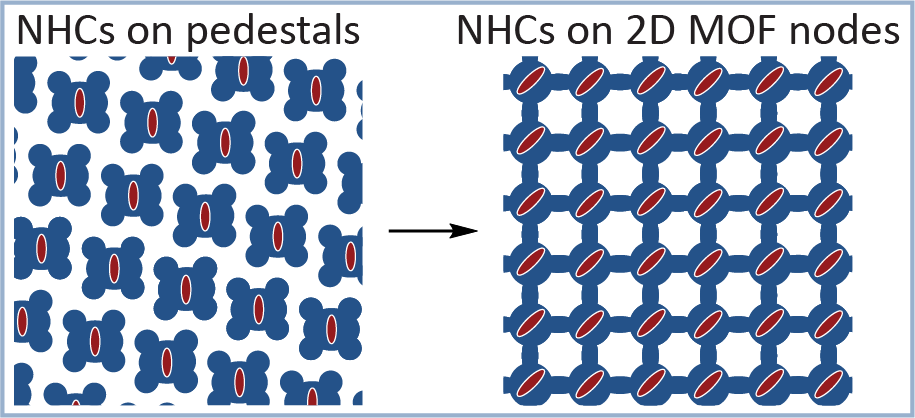
CASUMOF is designed to innovate in surface science to impact catalysis, electronics and quantum technologies. It is rooted in efforts to harness the extraordinary properties of N-heterocyclic carbenes (NHCs) in functional surface nanoarchitectures. NHCs are indeed outstanding ligands to most elements. Their exceptional potential in surface science is disruptive: NHCs impart stabilisation, are more robust anchors than even thiols and can be tethers for complex functionalisation. With atomic engineering of NHC surface arrangement, we can take control of the nanoarchitecture function.
So far, carbenes have been directly tethered to solid surfaces, allowing limited control of spacing and orientation. Shifting the paradigm, we direct the NHCs at defined chosen positions and open a realm of nanotechnological opportunities. Key to this approach are robust self-assembled surface nanoarchitectures used as substrates of NHC organometallic chemistry. Our recently published mounting and dismounting of NHCs on and off metalloporphyrin surface pedestals validates this breakthrough concept. Based on these findings, we propose bottom-up strategies to apply NHC for the reversible functionalisation of 2D metal-organic frameworks.
The research project is implemented in the framework of H.F.R.I. Call “Basic research Financing (Horizontal support of all Sciences)” under the National Recovery and Resilience Plan “Greece 2.0” funded by the European Union – NextGenerationEU (H.F.R.I. Project Number: 15609).



